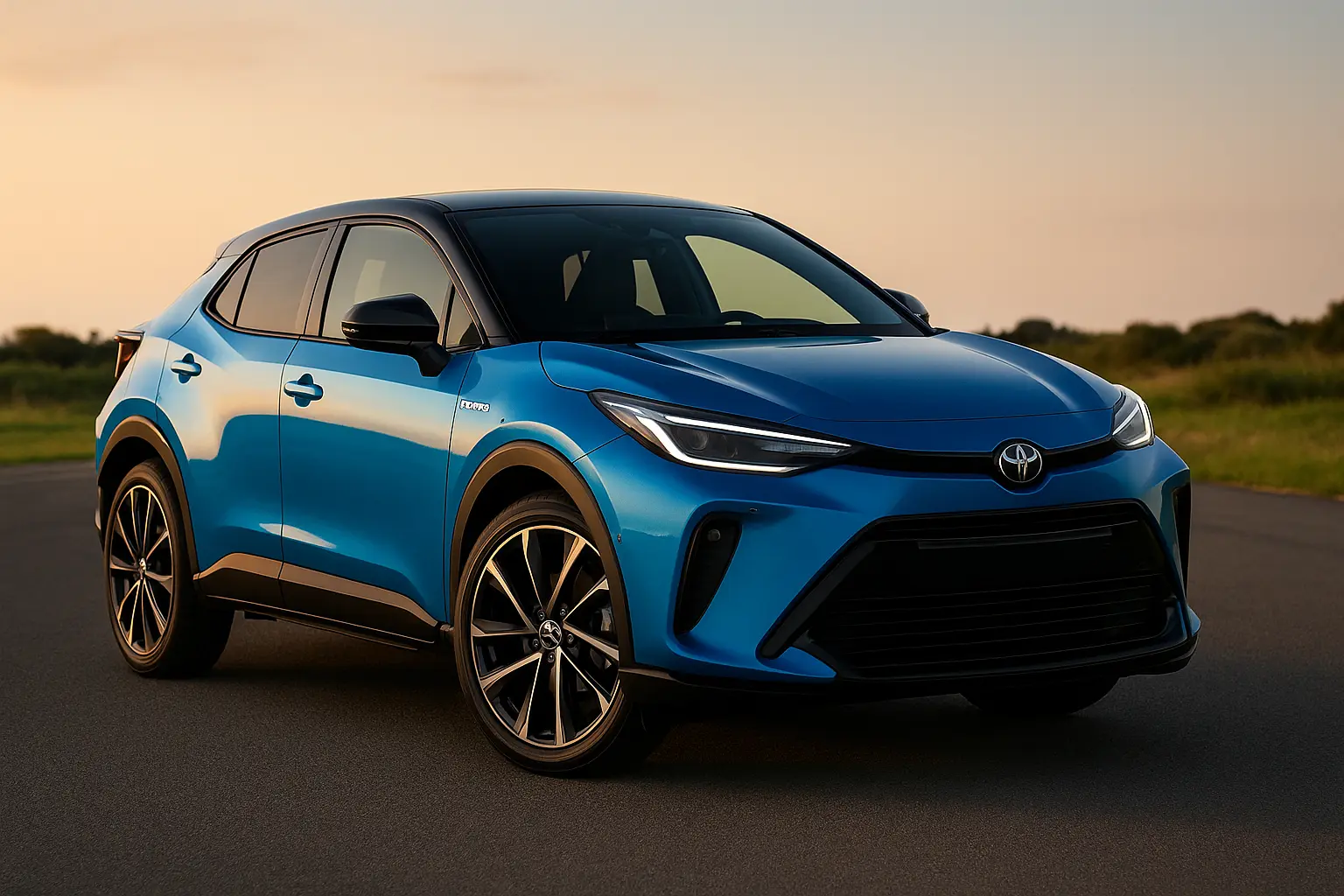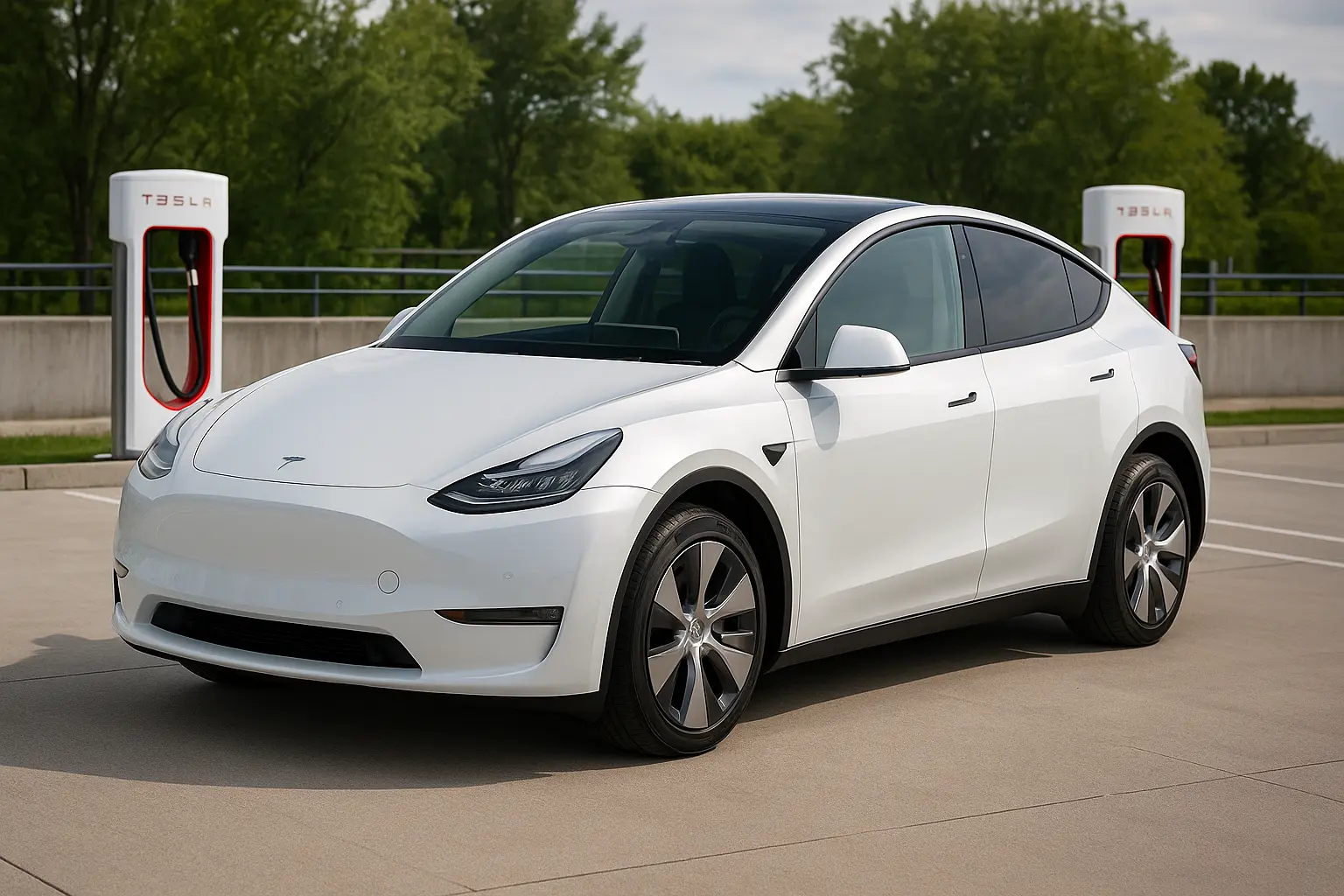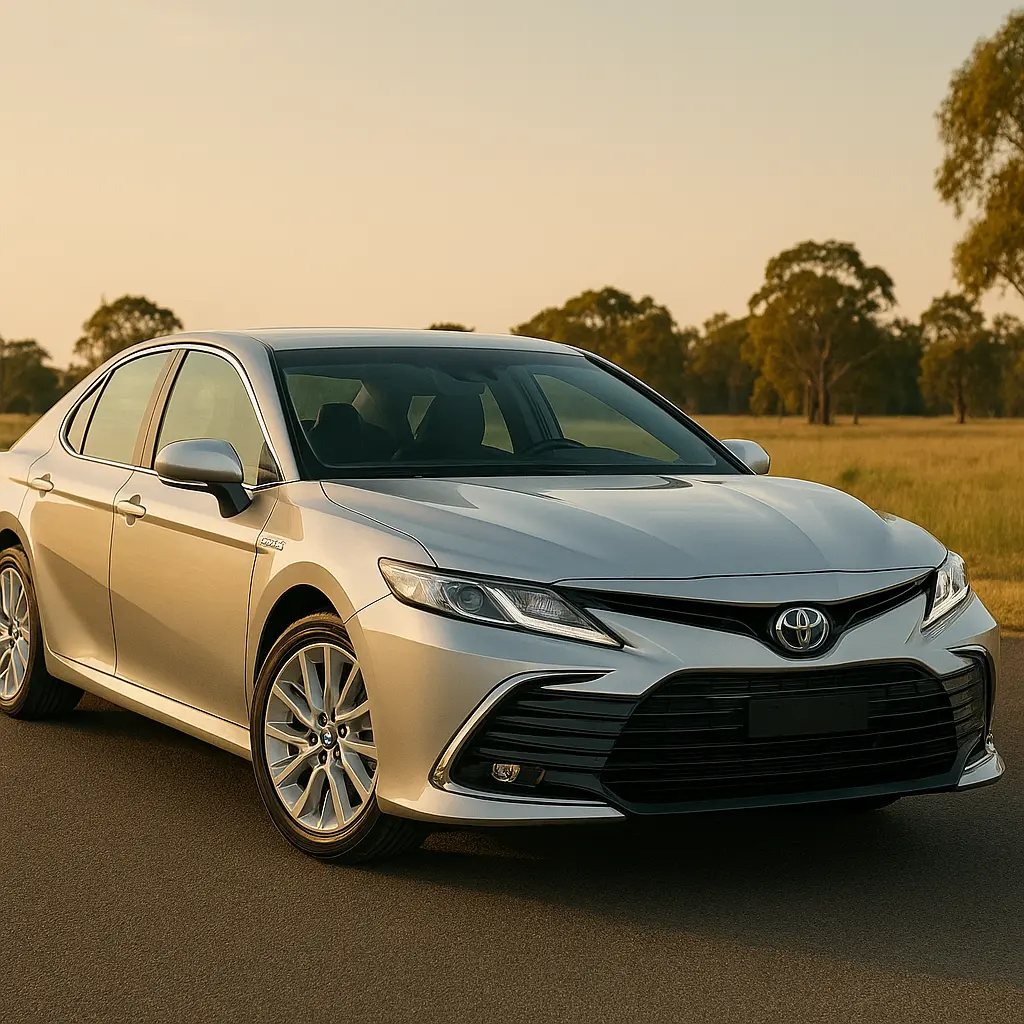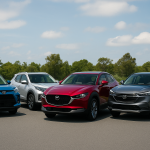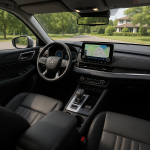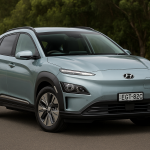The Toyota C-HR has been one of the most distinctive compact SUVs on Australian roads since its debut. With its coupe-like silhouette, bold styling, and Toyota’s reputation for reliability, the C-HR carved out a loyal following among urban drivers. For 2025, Toyota has given the C-HR a major refresh, bringing sharper design, upgraded technology, and a hybrid-only powertrain lineup for the Australian market.
This isn’t just another facelift — it’s Toyota repositioning the C-HR as a premium yet accessible compact SUV, with a clear focus on sustainability and innovation. For buyers considering small SUVs in 2025, the C-HR now competes with models like the Hyundai Kona Hybrid, Kia Niro, Honda HR-V e:HEV, and Mazda CX-30 Hybrid.
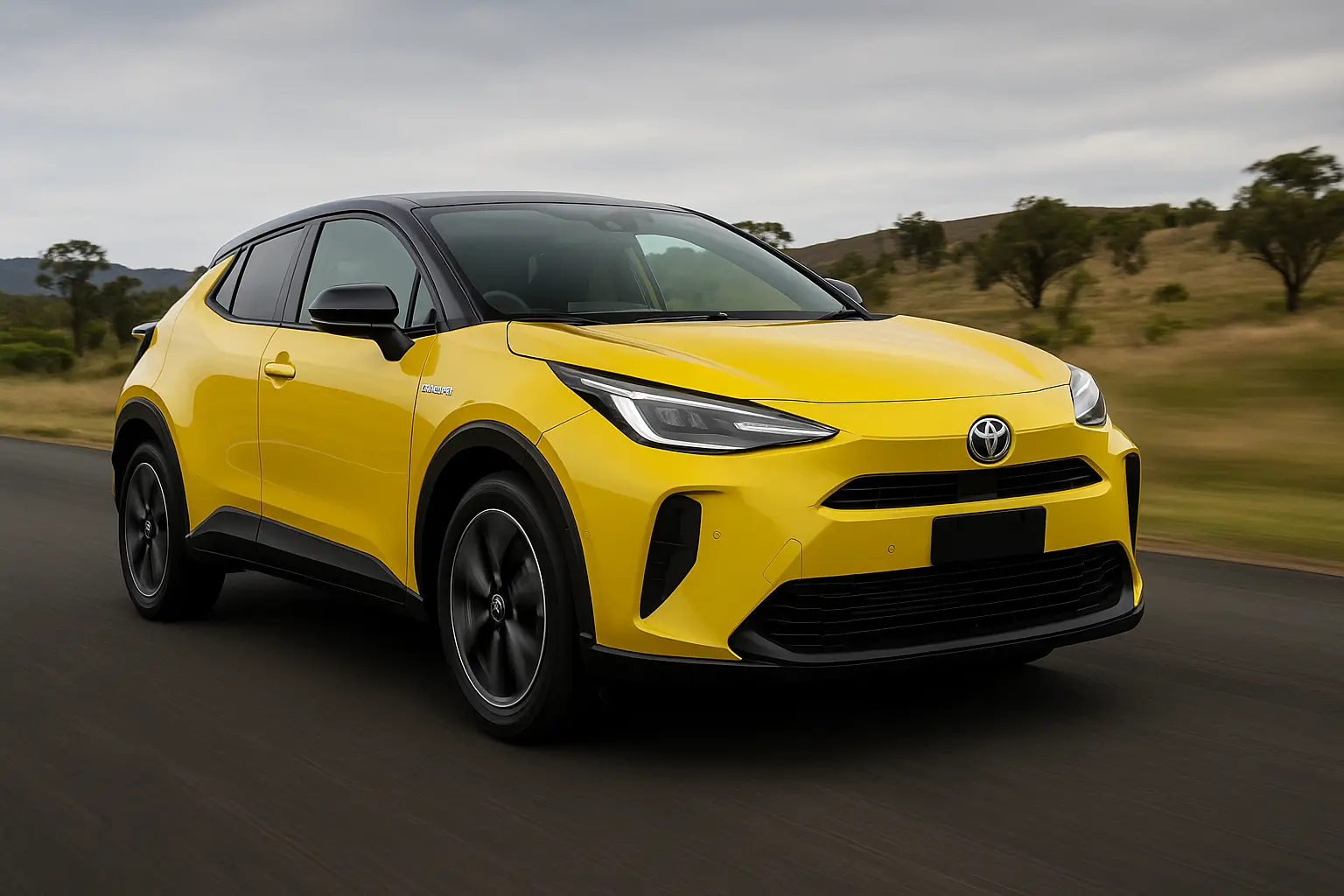
Exterior Design: A Bolder, More Dynamic Look
The first thing you’ll notice about the 2025 C-HR is how much sharper and sportier it looks. Toyota has taken inspiration from European design cues, with:
- Slimmer LED headlights that stretch into the front fenders, giving it a futuristic edge.
- A larger, gloss black grille with angular accents that balance sportiness with elegance.
- Strong character lines along the sides, adding a coupe-like stance.
- A two-tone roof option (in black or contrasting silver) for a personalised, premium touch.
- New 19-inch alloy wheel options, a first for the C-HR, adding more presence on the road.
Toyota’s design team clearly wanted to make the C-HR stand out in a crowded compact SUV segment. The result is a car that doesn’t just blend in at the school pick-up zone or office car park — it makes a statement.
Dimensions and Practicality
The 2025 C-HR retains its compact dimensions, making it easy to navigate city streets and tight parking spots:
- Length: ~4.4m
- Width: ~1.8m
- Height: ~1.56m
- Wheelbase: ~2.64m
Boot space has improved slightly, now offering around 400 litres, with folding rear seats expanding capacity for weekend trips. While it’s not class-leading in cargo space, it’s more practical than before, and Toyota has focused on clever storage solutions in the cabin for everyday use.
Powertrain: Hybrid-Only for Australia
Toyota has gone all-in on hybrid technology with the new C-HR. For 2025, petrol-only options are gone in Australia — every variant comes with Toyota’s latest self-charging hybrid systems.
Engine Options:
- 1.8-litre Hybrid (Front-Wheel Drive)
- Output: ~103kW combined
- Efficiency: ~4.1L/100km (WLTP estimate)
- Perfect for urban commuters who value efficiency.
- 2.0-litre Hybrid (Front-Wheel Drive or All-Wheel Drive)
- Output: ~146kW combined
- Efficiency: ~4.5–4.9L/100km (WLTP)
- Offers stronger acceleration for highway driving and longer trips.
Driving Experience
The hybrid system is smooth, refined, and well-suited to Australia’s mix of city and highway conditions. Thanks to electric motor assistance, the C-HR feels responsive in stop-start traffic. The CVT gearbox has been tuned to minimise drone, and regenerative braking has been improved for a more natural feel.
The all-wheel drive option is particularly appealing for drivers in rural areas or those who need extra grip on slippery roads.
Fuel Efficiency: A Key Selling Point
Fuel efficiency has always been a strong reason to choose Toyota hybrids, and the 2025 C-HR doesn’t disappoint. Depending on the variant, owners can expect 4.1–4.9L/100km.
In real-world Australian conditions:
- City drivers may see even lower fuel use, as the hybrid system spends more time in EV mode.
- Highway drivers will enjoy the balance of petrol power and electric assist for smooth cruising.
Compared to rivals like the petrol-only Mazda CX-30 (~7L/100km) or even mild hybrids, the C-HR represents a significant saving on running costs.
Interior: Comfort Meets Technology
Inside, the 2025 Toyota C-HR makes a leap forward in both design and technology.
- Digital Cockpit: A fully digital 12.3-inch driver’s display standard on higher trims.
- Infotainment System: A 12.3-inch touchscreen with wireless Apple CarPlay, Android Auto, and OTA software updates.
- Ambient Lighting: Customisable LED lighting for a premium feel.
- Materials: Soft-touch surfaces, eco-friendly seat fabrics, and available leatherette upholstery.
- Rear Passenger Space: Improved legroom and more supportive seats, addressing criticisms of earlier models.
The cabin feels more upscale and driver-focused than before, with clear ergonomics and a minimalist design that still retains Toyota’s user-friendliness.
Safety: Toyota’s Latest Tech
The 2025 C-HR is equipped with Toyota Safety Sense 3.0, which includes:
- Pre-collision warning with pedestrian & cyclist detection
- Adaptive cruise control with stop & go
- Lane departure alert with lane tracing assist
- Blind-spot monitoring & rear cross-traffic alert
- Traffic sign recognition
- 360-degree camera (on higher trims)
With these updates, the C-HR is expected to achieve a 5-star ANCAP safety rating, continuing Toyota’s strong safety reputation.
Variants and Pricing (Australia, Estimated)
While official pricing will vary by dealer, here’s an indicative breakdown:
- C-HR GX 1.8 Hybrid (FWD): from ~$42,000 drive-away
- C-HR GXL 2.0 Hybrid (FWD): from ~$46,000 drive-away
- C-HR Koba 2.0 Hybrid (AWD): from ~$52,000 drive-away
- C-HR GR Sport 2.0 Hybrid (AWD): from ~$56,000 drive-away
This pricing positions the C-HR slightly above some rivals, but Toyota is clearly targeting buyers who value premium features, hybrid efficiency, and long-term reliability.
Technology & Features: A Smart SUV
Beyond safety and infotainment, the C-HR adds thoughtful touches:
- Digital key access via smartphone app
- Over-the-air updates for infotainment and vehicle systems
- Cloud-based navigation with real-time traffic
- Premium JBL audio system (optional)
- Heated & ventilated front seats
- Panoramic glass roof option
Toyota has worked hard to ensure the C-HR feels like more than just a compact SUV — it feels like a lifestyle upgrade.
Driving Impressions: Urban-Friendly, Highway-Capable
The 2025 Toyota C-HR drives exactly how its audience expects: easy, quiet, and efficient in the city, with enough punch on highways.
- In traffic, the electric motor provides instant torque, making it feel lively off the line.
- Steering is light but accurate, ideal for city manoeuvring.
- On highways, the 2.0-litre hybrid is smooth and relaxed, with enough overtaking power.
- Ride comfort is well-balanced, with suspension tuned for Australian conditions.
Noise insulation has been improved, giving the C-HR a more premium feel at higher speeds.
Competitors: How It Stacks Up
The compact SUV market is crowded, but the C-HR stands out:
- Hyundai Kona Hybrid: Slightly cheaper, but less premium inside.
- Kia Niro Hybrid: Spacious and efficient, but conservative styling.
- Honda HR-V e:HEV: High quality, but more expensive and less practical.
- Mazda CX-30: Stylish and fun to drive, but lacks a full hybrid option.
The Toyota C-HR strikes a balance of design, hybrid efficiency, and Toyota’s trusted ownership experience.
Maintenance & Ownership
One of Toyota’s key advantages in Australia is its ownership proposition:
- 5-year/unlimited km warranty (extendable to 7 years with servicing).
- Hybrid battery warranty: 10 years with annual hybrid health checks.
- Capped-price servicing: Typically every 12 months/15,000km.
Running costs are expected to be among the lowest in class, making the C-HR appealing not only upfront but also long-term.
Who Should Buy the 2025 Toyota C-HR?
The C-HR is best suited for:
- Urban professionals who want a stylish, eco-friendly daily driver.
- Small families or couples who value safety and tech.
- First hybrid buyers looking for reliability without the jump to EVs.
- Design-conscious drivers who want something different from mainstream SUVs.
Final Verdict: Compact SUV Done Right
The 2025 Toyota C-HR proves that compact SUVs can be both stylish and sensible. With hybrid-only powertrains, upgraded tech, and Toyota’s reliability, it’s one of the most compelling choices in its segment.
For Australians seeking a compact SUV that balances eco-friendliness with everyday practicality, the C-HR deserves a spot at the top of the shortlist.
Leave a comment
Your email address will not be published. Required fields are marked *


